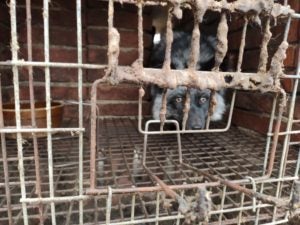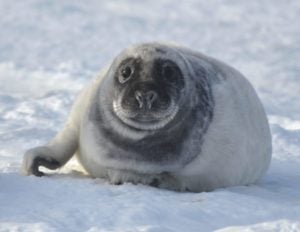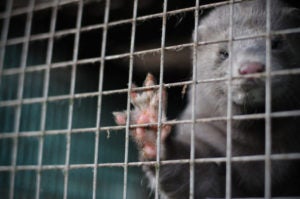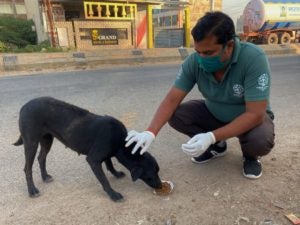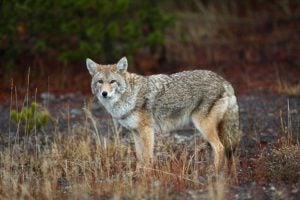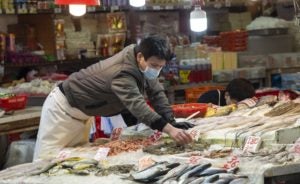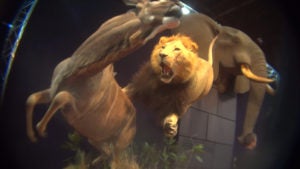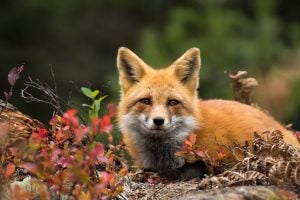
LONDON—British citizens overwhelmingly agree that the time has come for Britain to be fur-free. A new YouGov opinion poll, commissioned by animal charity Humane Society International/UK, reveals that 93% of the British population reject wearing real animal fur, and the majority (72%) support a complete ban on the sale of fur in the UK. The poll also demonstrates Brits’ scathing view of fur – the words that people most closely associate with a fashion brand selling fur are ‘unethical’, ‘outdated’, ‘cruel’ and ‘out of touch’.
HSI/UK released the poll as part of its #FurFreeBritain campaign for a UK fur sales ban, just one day after HSI’s latest investigation exposed horrific suffering of foxes and raccoon dogs on fur farms in Asia.
HSI/UK’s call for a fur sales ban addresses a double-standard left over from the year 2000’s victory for animals, when the UK announced a ban on fur farming in Britain. However, the ban didn’t prevent the import and sale of fur from animals farmed overseas, and since the ban came into effect in 2003, almost £800m of fur has been imported into the UK from fur farms in France, Italy, Poland, China and other countries. In 2018 almost £75m of animal fur was imported into the UK.
Claire Bass, executive director of Humane Society International/UK, said: “This new poll shows without a doubt that most Brits reject fur, and they want that reflected in British law with a UK fur sales ban. Like us, they believe that if fur is too cruel to farm in the UK, it is too cruel to sell here too. The vast majority of designers and retailers have already turned their backs on outdated fur, so now it’s time for the UK governments to take action. For as long as fur is sold in our shops, Britain is complicit in the suffering and death of millions of fur bearing animals for the fashion industry. British consumers have made their views clear – fur is cruel, outdated and it should be banned.”
YouGov/HSI poll results:
The most significant statistics include:
- 72% support a ban on the import and sale of animal fur in the UK (rising to 81% of Scottish voters);
- The public most closely associate negative words, including “unethical”, “cruel”, “outdated” and “out of touch” with a fashion brand that sells real animals fur;
- The vast majority of Brits reject wearing real fur: 83% have never worn real fur and another 10% have worn fur in the past but no longer do so. Only 3% currently wear real animal fur.
Bass continued “Any fashion brands or designers currently on the fence about whether or not to sell animal fur should take a close look at these poll results from a business perspective. When given free choice of a range of positive and negative words to describe a fashion brand that sells fur, 79% of people chose negative associations – unethical, cruel, outdated and out of touch. The fur trade’s PR spin has failed to shake solid public perceptions that this is an industry that has no place in modern fashion.”
The #FurFreeBritain campaign has received support from a cross party group of MPs, and Early Day Motion 267, urging the government to introduce legislation banning the import and sale of real fur products, has so far been signed by 106 MPs, including Tracey Crouch, Maria Eagle, Dr Lisa Cameron and Tim Farron.
Celebrities have also expressed their shock at the animal suffering for the fur trade, and pledged their support for HSI’s #FurFreeBritain campaign.
Dame Judi Dench said: “I am proud that the UK was the first country in the world to ban fur farming, and I hope we will be the first country in the world to ban fur sales. Fur farming is cruel and unnecessary.”
Leona Lewis said: “I love all animals, and believe they should be treated with kindness and respect. So as an animal lover I would never wear fur. That’s why I’m a proud supporter of HSI’s #FurFreeBritain campaign for a UK fur sales ban.”
Ricky Gervais said: “I will never understand why anyone would want to wear fur – a beautiful fox who has been beaten or electrocuted, a mink who has been gassed to death, or a coyote who has suffered in a leg hold trap and then been shot in the head. How can anyone want to wear that on their hat or their coat, and how can Britain still sell fur when we banned fur farming for being cruel? It’s utter hypocrisy and that’s why I wholeheartedly support HSI’s #FurFreeBritain campaign.”
HSI/UK’s most recent investigation of fur farms in Asia shows foxes and raccoon dogs living miserable lives in appalling conditions, and enduring painful deaths. Foxes were filmed being repeatedly bludgeoned over the head, resulting in catastrophic injury but not instant death in many cases, and other animals were kicked and cut with knives, or even skinned alive.
Fur facts:
- More than 100 million animals are killed for their fur every year worldwide including mink, fox, raccoon dog, chinchilla and coyote – that’s equal to three animals dying every second, just for their fur.
- Rabbits are also killed for their fur, likely to be in the hundreds of millions.
- Fur comes with a hefty environmental price tag. Whilst all materials have some eco-footprint, when compared to other textiles, fur takes a significant toll in terms of the C02 emissions associated with keeping and feeding tens of thousands of carnivorous animals on a farm, the manure runoff into lakes and rivers, and the cocktail of toxic and carcinogenic chemicals such as chromium and formaldehyde used to preserve the fur and skin to stop it from rotting.
- An increasing number of fashion designers and retailers are dropping fur cruelty. In the last few years alone Prada, Gucci, Armani, Versace, Michael Kors, Jimmy Choo, DKNY, Burberry, Chanel and other high-profile brands have announced fur-free policies. In addition, online fashion retail platforms Net-A-Porter and Farfetch have introduced no-fur policies.
|
Which of the following words would you most closely associate with a fashion brand that sells real animal fur? (percentage) |
|
| Unethical | 27 |
| Cruel | 24 |
| Outdated | 15 |
| Out of touch | 13 |
| Luxury | 6 |
| Modern | 1 |
| Sustainable | 0 |
| On trend | 0 |
| None of the above | 4 |
| Don’t know | 10 |
Download fur farm photos and video here
ENDS
Media contact: Leozette Roode, HSI/UK Media and Campaigns Manager, Lroode@hsi.org, + 27 71 360 1104
Notes to the editor:
All figures, unless otherwise stated, are from YouGov Plc. Total sample size was 1,682 adults. Fieldwork was undertaken between 4th – 5th March 2020. The survey was carried out online. The figures have been weighted and are representative of all GB adults (aged 18+).

